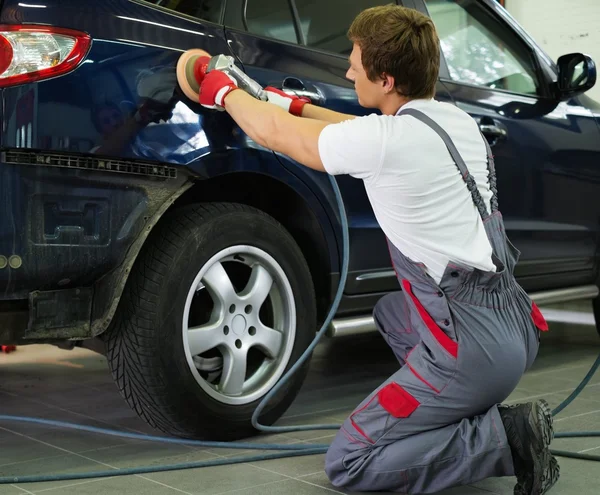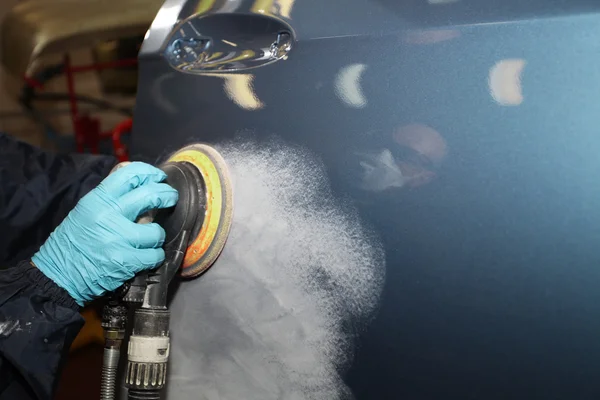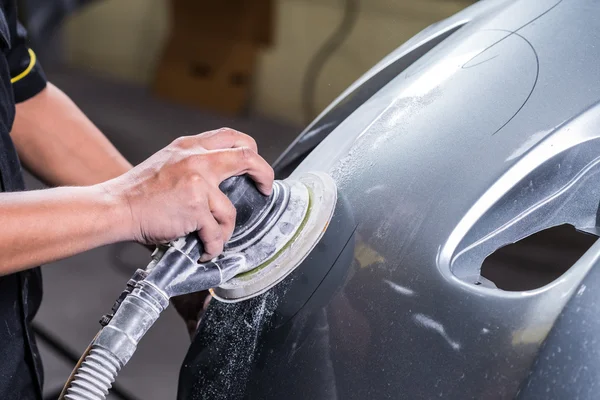Beyond Aesthetics: The Importance Of Quality Auto Body Repair In Vehicle Safety
In the realm of automotive care, the focus often gravitates towards aesthetics: the shine of a new paint job, the sleek curves of a well-designed vehicle, or the allure of pristine interiors. However, beneath the surface, lies a critical aspect that often gets overlooked—the importance of quality auto body repair in ensuring vehicle safety. Auto dent repair involves using specialized techniques and tools to remove dents from a vehicle's body without affecting the original paint finish, ensuring a smooth and seamless restoration.
The Invisible Threats
When a vehicle undergoes a collision or sustains damage, the consequences can extend far beyond mere cosmetic blemishes. Structural integrity, alignment, and the proper functioning of safety systems can all be compromised, posing significant risks to both occupants and other road users.
Consider a scenario where a car is involved in a rear-end collision. At first glance, the damage may appear minor, perhaps limited to a dented bumper or scratched paint. However, deeper inspection often reveals underlying issues such as frame misalignment or damage to crucial safety components like airbag sensors. Ignoring these issues or opting for subpar repairs can have disastrous consequences in the event of another accident.
The Role of Quality Auto Body Repair
Quality auto body repair extends beyond cosmetic touch-ups. It involves a meticulous process aimed at restoring the vehicle to its pre-accident condition, both in terms of appearance and functionality. This includes:

- Structural Repair: Addressing damage to the vehicle's frame or chassis is paramount for ensuring structural integrity. Advanced techniques such as computerized measuring systems and frame straightening equipment are employed to restore the frame to its original specifications, minimizing the risk of future structural failure.
- Safety System Calibration: Modern vehicles are equipped with a myriad of safety systems, including airbags, collision avoidance systems, and lane departure warning systems. Following an accident, these systems may require recalibration to ensure they function correctly. Proper calibration is essential for timely deployment and effectiveness in the event of a collision.
- Quality Parts and Materials: Using inferior or aftermarket parts during repairs can compromise the safety and performance of the vehicle. Reputable auto body shops prioritize the use of OEM (Original Equipment Manufacturer) parts or certified equivalents to maintain the vehicle's integrity and safety standards.
- Thorough Inspection and Testing: A comprehensive post-repair inspection is crucial for verifying the effectiveness of repairs and ensuring that all safety-critical components are functioning as intended. This may involve road testing the vehicle under various conditions to detect any anomalies and address them promptly.
Safety Beyond the Surface
The significance of quality auto body repair becomes even more apparent when considering the interconnectedness of vehicle safety systems. A seemingly minor dent or scratch can have ripple effects, compromising the overall safety of the vehicle in unexpected ways.
For instance, damage to the front end of a vehicle can affect the alignment of headlights, reducing visibility and increasing the risk of nighttime accidents. Similarly, a damaged bumper may impair the effectiveness of parking sensors or adaptive cruise control systems, leading to potential collisions in low-speed scenarios.
Furthermore, compromised structural integrity can amplify the severity of accidents by failing to absorb and distribute impact forces effectively. This not only increases the risk of injury to occupants but also diminishes the vehicle's ability to protect against secondary collisions or rollovers.
The Human Factor
Beyond the technical aspects, there's also a human element to consider. Drivers and passengers place implicit trust in the safety of their vehicles, assuming that they will provide adequate protection in the event of an accident. However, this trust can be misplaced if proper repairs are not undertaken following damage.
Moreover, the safety of other road users is also at stake. A poorly repaired vehicle poses a hazard to everyone sharing the road, potentially causing accidents that could have been prevented with quality repairs.

The Economic Impact
While prioritizing safety should always be the primary concern, there are also economic implications to consider. Investing in quality auto body repair may entail higher upfront costs compared to quick fixes or subpar repairs. However, the long-term benefits far outweigh the immediate savings.
Properly repaired vehicles are less likely to experience costly mechanical failures or safety-related issues down the line. Additionally, maintaining the structural integrity and safety features of a vehicle can enhance its resale value, providing a return on investment in the event of a sale or trade-in.
Preventing Corrosion and Rust
Beyond immediate safety concerns, quality auto body repair also addresses long-term issues such as corrosion and rust. When a vehicle's protective paint coating is compromised due to collision damage, exposed metal surfaces are vulnerable to corrosion, especially in regions with harsh climates or high levels of road salt.
Corrosion not only affects the structural integrity of the vehicle but also undermines safety by weakening critical components over time. Quality repair shops employ corrosion protection measures, such as rust inhibitors and proper sealing techniques, to mitigate these risks and ensure the longevity of repairs.
The Role of Certification and Training
Ensuring quality auto body repair requires skilled technicians who are trained to handle the complexities of modern vehicles.
- Certification programs, such as those offered by manufacturers and industry organizations, provide technicians with the knowledge and expertise needed to perform repairs to the highest standards.
- Certified technicians are well-versed in the latest repair techniques, materials, and technologies, allowing them to deliver superior results while adhering to OEM guidelines.
- By choosing a certified repair facility, vehicle owners can have confidence in the quality and safety of the repairs performed on their vehicles.
110 E 43rd St, Suite 120
Garden City, Idaho 83714, USA
Phone: (208)-251-5338

